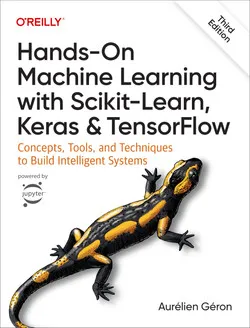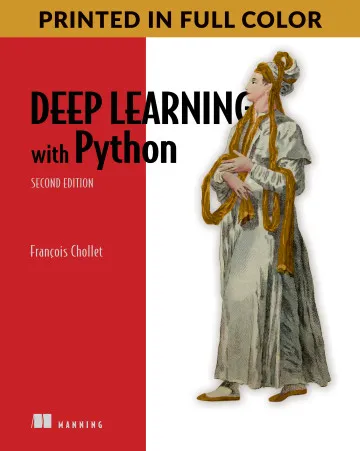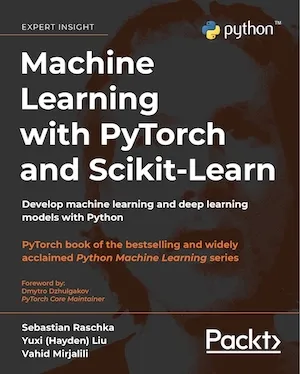FAQ
If you are an absolute beginner in deep learning, chances are you have a lot of questions. Questions like "what text editor is commonly used among deep learning practicioners?" or "what is the best deep learning library?", or "what books should I study?". We will not be able to answer all your questions, but we will try to provide you with enough answers so that you can start creating simple models and study on your own.
Code Editors
Info
What code editor should I use in my daily programming?
VS Code (Visual Studio Code) by Microsoft is a very popular choice among researchers and practicioners. The editor has a lot of plugins and you can setup your environment withing a couple of minutes.
Jupyter Notebooks with JupyterLab are a great way to test things out and to visualize your results. For larger projects it is not the preferred option. We will use notebooks extensively in this block, as notebookos are great for teaching purposes.
Warning
We recommend Jupyter Notebooks for experimentation and VS Code for larger projects, but the choice is ultimately yours.
Frameworks
Info
What programming languages and frameworks are suited for deep learning?
Deep learning algorithms are usually implemented with specialized deep learning frameworks. These frameworks can run on the GPU to improve the speed of training and execution, have build in functionality that is commonly used in deep learning research and are battle tested. Implementing all those details by hand is usually a bad idea, unless you do it for learning purposes.
Deep learning frameworks have a rich history. If we wrote this chapter two years ago the content would look different. Five years ago the contents would be different again. That says a lot about the speed with which the development of those frameworks progresses.
All of the below mentioned frameworks use Python as the interface language between the programmer and the underlying execution. The frameworks themselves on the other hand are written in C++ and CUDA to optimize performance. There are frameworks that use other programming languages instead of Python like R, Julia or even JavaScript, but mostly research and education is done in Python so you are out of luck if you prefer any other programming language. Python is still king in the deep learning community.
TensorFlow and Keras
TensorFlow is Google's flagship deep learning framework. The framework was first released in the year 2015, which makes it the oldest in our list. Keras is a higher level api that sits on top of TensorFlow and provides a lot of convenience for developers by reducing a lot of overhead. Keras was actually developed independently by François Chollet in order to facilitate fast and easy deep learning development. Originally Keras supported multiple deep learning libraries (for example Theano), but became an integral part of TensorFlow 2 in 2019 and nowadays only supports TensorFlow. You can say that TensorFlow and Keras go hand in hand. Keras is an incredible great choice for beginners. It has a vibrant community and you will have no difficulty to find tutorials and books to learn from.
PyTorch
PyTorch is Meta's flagship deep learning framework, which was originally inspired by Torch, a Lua based deep learning library. In the years after the initial release in 2016, PyTorch has become a favorite among deep learning researchers and has overtaken TensorFlow.
JAX
JAX is the new kid on the block. Like Keras and TensorFlow, JAX is developed by Google. JAX has been gaining a lot of traction over the last couple of years.
Warning
It is up to you which framework you choose. Especially when it comes to studying deep learning, all of the above frameworks are fine choices and are highly recommended. Keras and PyTorch have a much larger community and provide many more books and tutorials, but this might change within a couple of years. At the moment of writing most of our code examples are implemented in PyTorch.
GPU Resources
Info
Where can I get free or cheap GPU resources?
You require modern NVIDIA grapics cards for training and inference, but that option might not be available to everyone. If you are at the beginning of your carreer or live in a part of the world where it is unfeasable to afford your own computational resources, there are either cheap or free alternatives.
Free Cloud Resources
Google Colab (Colaboratory) provides you with free cloud compute in the form of Jupyter Notebooks. You can switch between CPU, GPU and TPU resources. If you use the platform extensively without a break they might switch you to a lower tier server or give you a time out, but considering the cost is zero, this is a great deal. Google also provides payed tiers with better GPUs and lower chance of getting disconnected. For learning purposes the free tier should be sufficient.
Kaggle is a plattform designed to run machine learning competitions. For that purpose they provide you weekly resources with at least 30 GPU hours and at least 30 TPU hours. Unlike Google Colab, Kaggle will not disconnect you, but when the hours run out you have to wait until the resources are reset. Kolab was acquired by Google, therefore the type of GPU or TPU you receive are comparable to those at Colab.
If you are looking for alternatives free of Google, Paperspace might be it. Similar to Google Colab, Paperspace provides free cloud GPU notebooks for beginners and payed tiers for advanced users.
Paid Cloud Resources
There are tons of cloud providers that can hook you up with payed GPU instances. AWS by Amazon, Azure by Microsoft and Google Cloud are the top three players, but usually smaller alternatives like Lambda or Linode are much more buged friendly.
Education in Deep Learning
Info
What resources should I use for studying deep learning?
We encourage you to consult many different sources on your deep learning journey. It usually requires more than one single resource to understand a topic. You should explore different books, videos, blog posts and research papers to get the full picture. Once you grasp the basics of deep learning, you still need to find a way to keep up to date with the newest research and this might not be the easiest task for a beginner. Below we attempt to list the most relevant literature for beginners and give hints on ways you can stay informed regarding the newest developments in deep learning.
Books
Books are a great gateway into the world of deep learning. Especially when it comes to beginner level books the choices are great.

"Hands-on Machine Learning with Scikit-Learn, Keras and TensorFlow" by Aurélien Géron is a great choice, especially if you don't know where to start. If you have only one book to pick, this is probabliy the right pick. The book covers classical machine learning and goes on to discuss deep learning with Keras and TensorFlow in detail. While the book is very well suited for beginners, advanced topics like handling large amounts of data are covered as well.

The book "DEEP LEARNING with Python" is written by the creator of Keras, so you know you get quality content. François Chollet covers exclusively deep learning with a high focus on intuition and Python practice.

The book "Machine Learning with PyTorch and Scikit-Learn" by Sebastian Raschka is similar in scope to the book by Aurélien Géron, but instead of using Keras and TensorFlow the author uses PyTorch. For the time being World4AI is going to provide notebooks written in PyTorch, so you will probably feel most comfortable with this book if you plan on using our notebooks.
Online Courses
If you learn better through visual and audio explanations, online courses might be a great fit. Just as with our book recommendations, there is a lot of quality content for beginners and few resources for intermediary and advanced users.
fast.ai is several things at the same time. It is a non-profit with the goal of democratizing deep learning, a deep learning library based on PyTorch, a book called 'Deep Learning for Coders With Fasai and Pytorch' and an online course that teaches you deep learning. The approach taken by fast.ai differs from most books and courses. They teach you how you can generate state of the art results first and go into the basic building blocks of neural networks second.
The deep learning coursera course by Andrew Ng is probably the most famous and the most acknowledged course in deep learning. The course starts with the basic building blocks of deep learning and steadily moves towards the state of the art. The course is not free, but there is financial support available if you can not afford the lectures.
The NYU deep learning course by Yann LeCun and Alfredo Canziani has become one of the most acknowledged courses over the last couple of years. The course is very in-depth and very engaging, but is probably not the best choice for absolute beginners. We recommend you take this course after you have had some exposure to an introductory course or book.
Deep Learning Practice
You can not learn deep learning without applying the algorithms with a deep learning framework yourself. Learning the theory is not going to be sufficient. If you have the data and an idea, then go for it and upload your project to GitHub. A popular alternative is to compete in machine learning challenges. The most popular plattform that host competitions is Kaggle. There you can take part in discussions, upload datasets, create notebooks and take part in competitions. The plattform has a ranking system in the four mentioned categories and allows you to grow in the ranks and gain reputation and titles. Additionally many of the challenges give out monetary prices. Kaggle is essentially a social network, so if you want to get addicted to one, kaggle is a good choice for machine learning practitioners.
Keeping Up With Research
When you come from the outside of the deep learning research community, you do not have access to a personal network that you can utilize to find the most relevant research papers you should focus on. Fortunately you have access to twitter and can therefore follow companies that focus on deep learning research, established researchers and book authors to get access to your own individual network. Many of those sources will share interesting articles, tutorials, videos and the newest research. It will take some time to find which sources are the most reliable, but the benefits are enormous. We suggest that you create an account especially for the purpose of participating in the deep learning community and avoid other types of content. Otherwise you will experience the "dark side" of twitter.